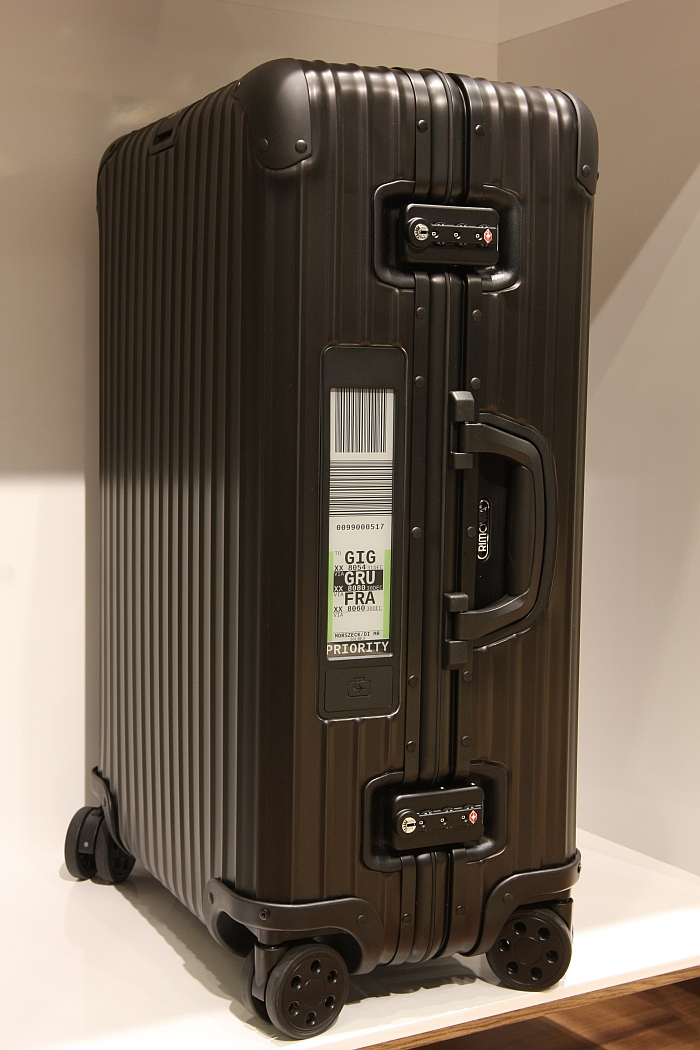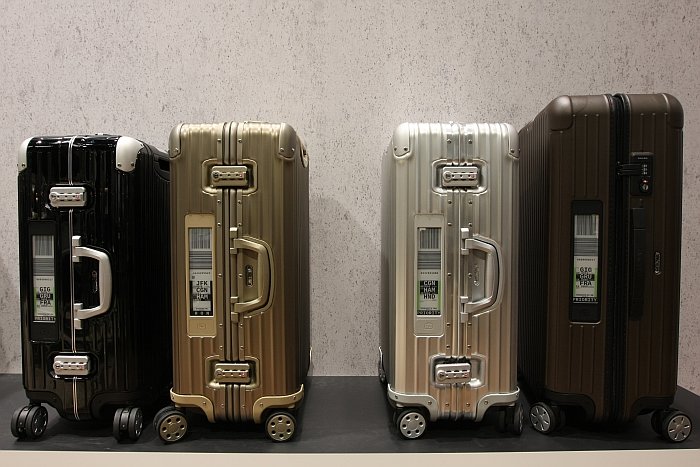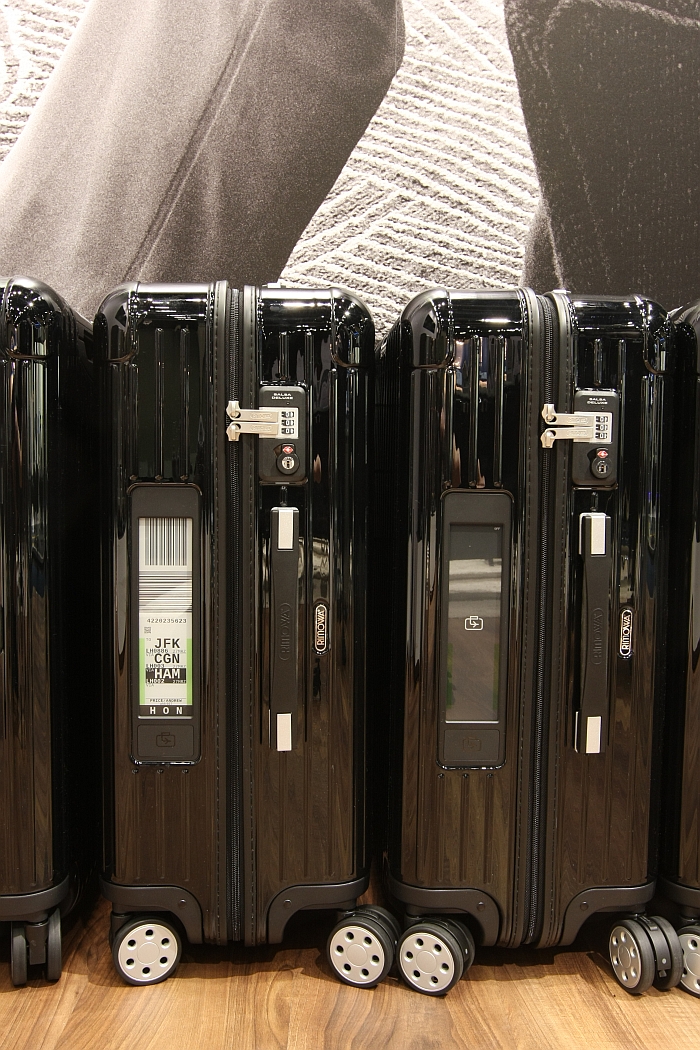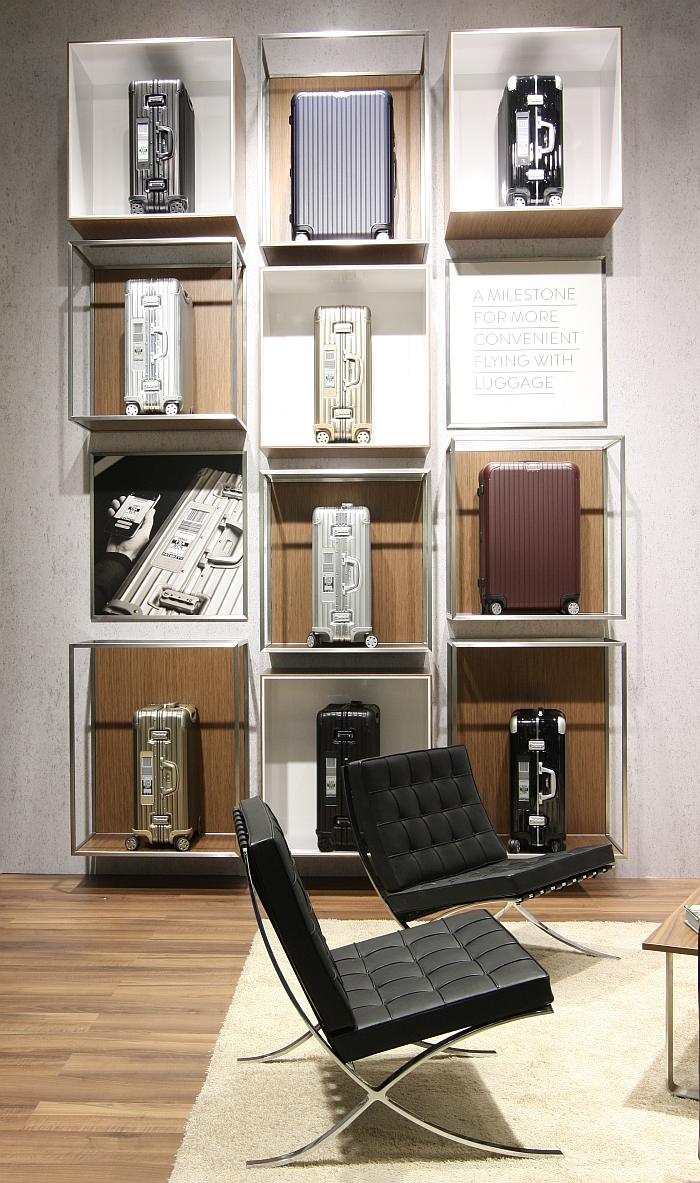As more loyal readers will be aware, we are firmly of the opinion that increasing digital technology must be employed, autocratically if necessary, to reduce our daily need for and on paper; there are so many examples of unnecessary paper use, of situations where digital technology provides or could provide a more than suitable alternative.
Those same readers will also be aware that we are extremely uneasy about any developments which extend society's dependency on smartphones and tablets, for the very obvious reasons that the more we depend on such, the more we risk creating a new type of poverty, new "class" boundaries and also new forms of control, monitoring and suppression.
Its a tightrope, but as Philippe Petit has regularly proved, a tightrope needn't be a hindrance. And can indeed be a tool to creative freedom.
At Passenger Terminal Expo 2016 in Cologne German luggage manufacturer Rimowa presented a new digital luggage labelling solution which in context of a paperless future very much appealed to us.
According to Rimowa their Electronic Tag is the first digital luggage check-in solution and means that after having checked in online for your flight, and received your electronic boarding card, you can then "check in" your luggage, the label being sent via Bluetooth to your suitcase where it is displayed on a small screen.
A very elegant, effortless and eminently sensible solution, what particularly appeals to us is the fact that the developers have decided to keep the visual design of the "classic" luggage label. There was no need to, important for the airports and airlines are alone the bar codes and the three letter airport codes, Rimowa could have created a new layout for the digital label. Didn't. Which is very pleasing because nothing says "flying" quite like the green stripes and solid blocks of a luggage label. And we've lost enough of the charm, mystique and luxury of flying without having to bid adieu to such simple yet satisfying visual charms.
Currently only available in Rimowa suitcases we suspect that the technology will quickly spread, largely because we suspect that airlines and airports will encourage, or perhaps better put force, uptake of such: pre-labelled bags save costs in terms of printing labels, save costs in terms of staff, while the digital technology also allows for new, less voluminous, less formal, baggage drop facilities, and thus not only savings in terms of infrastructure but also offering the possibility of an improved customer service experience and freeing up space for retail and catering.
The new technology won't replace the analogue completely, there will always be the likes of us who turn up at airports with a rucksack; but we can definitely foresee a future where such technology is standard for a majority of travellers. And eventually where RFID or similar chips are built into luggage, which will of course be a sad day as then the luggage label design will finally have boarded the long, one way flight to Retirement City.
More information on the Rimowa Electronic Tag can be found at www.rimowa-electronictag.com



